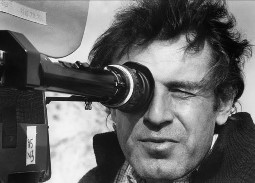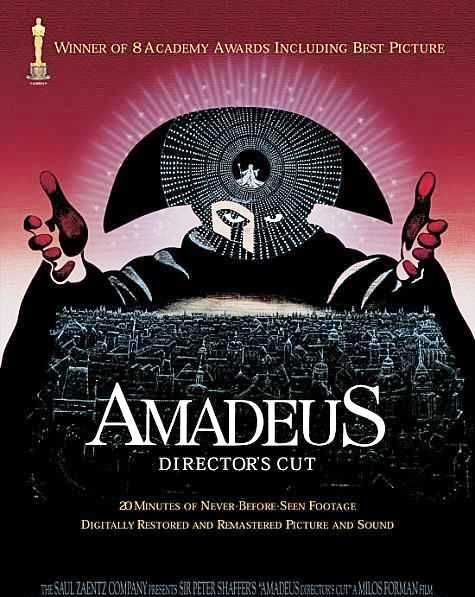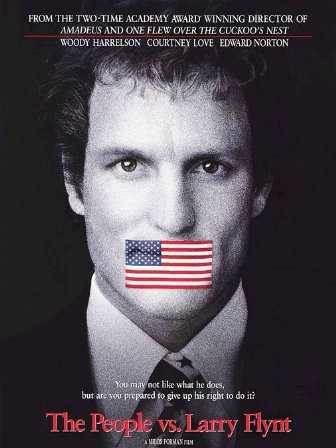|
|
||
|
Pro Tools
FILMFESTIVALS | 24/7 world wide coverageWelcome ! Enjoy the best of both worlds: Film & Festival News, exploring the best of the film festivals community. Launched in 1995, relentlessly connecting films to festivals, documenting and promoting festivals worldwide. Working on an upgrade soon. For collaboration, editorial contributions, or publicity, please send us an email here. User login |
Milos Forman: Milostones
Milos Forman: Milostones News has just come in that Milos Forman has passed away at 86. He leaves behind a legacy of superlative work, in a career that spanned more than six decades. Born on 18 Feb 1932 at Cáslav, Czechoslovakia, Milos was the son of a Jewish Professor of Education and a Protestant mother. World War II saw both of them working for a resistance group. Caught, they were sent to Nazi concentration camps, from where they never returned. Milos was orphaned at eight, and was raised by relatives. A graduate of Prague’s Film Faculty, Academy of Music and Dramatic Art, he started writing screenplays in the early 50s. This was followed by a stint with Czech TV, 1954-56.
He participated in the early Latera Magika (1958-62) mixed media presentations. As director, he made his debut in 1963, with medium length films, Audition/Talent Competition and If There Were No Music. Black Peter/Peter and Pavla (1963), his very first feature, won the 1st prize at Locarno. He received critical and box-office success with his next two films, Loves of a Blonde (1965) and The Fireman’s Ball (1968). In effect, Milos Forman became the face of the Czech New Wave. Forman evinced a keen interest in the funny side of human foibles. He encouraged improvisation and believed that actors brought something of their own to the table. Ironic comedy became his forté. Also, generation gap appeared as a recurrent theme in his films. His free creativity blossomed in the mid 60s, considered a ‘liberal spring’ in Czech politics. But the good times were very short-lived.
He was in Paris, scouting for a film project when Russia invaded his country. He remained in France till 1969, when he moved to New York, with fellow director Ivan Passer. A deal was struck with Universal but proved abortive. Soon afterwards, Universal signed him for Taking Off (1971), on his pet theme of the generation gap. In 1975, he made One Flew Over the Cuckoo’s Nest, which bagged all five major Oscars, a feat accomplished only once before, in 1934, by It Happened One Night.
Forman made a spirited and imaginative screen version of Hair (1979) and a colourfully evocative adaptation of E.L. Doctorow’s novel, Ragtime (1981). With Amadeus (1983), he again scored big at the Oscars. In later years, he gave us The People v/s Larry Flynt (1995) and Man on the Moon (1999), the former won a Golden Globe, the latter a Silver Bear, both for his direction. As director, his last films were Goya’s Ghosts (2006) and A Walk Worthwhile (2009, co-directed). Occasionally, he donned grease paint too: Heartburn (1986), New Year’s Day (1999), Keeping the Faith (2000) Chelsea on the Rocks (2008), Peklo’s princeznou (Hell with a Princess-2009) and The Beloved (Les Bien-aimés) were some of the films in which he acted. Quotes “The backstage of the operetta company smelled nicely of a mixture of voluptuous femininity, cheap scents, violets, sweating bodies, roses, make-up, stiff laces being ironed, moth balls, alcoholic drinks, cookies, ballet shoes with sweaty tights and little skirts with a light scent of urine – and I immediately decided that this is the world I belong to.” “You didn't try to express anything; you just wanted to have fun, and somewhere back in your head you knew that you are bugging these idiots, you know, like Bilak and Jakes and Novotny and these totally corrupt people.” (on The Fireman’s Ball)
“I didn't know anything, except for what most other people know about him: that he's a smut peddler. I always read at least twenty-five pages of every script to find out if it grabs me or not. When I got this one, [at first] I didn't read it at all, because I saw the title, Larry Flynt's name. I thought they wanted me to do some kind of exploitation film, which really is not my metier. But when I found out that Oliver Stone was one of the producers, I read it more or less as a courtesy to Oliver. I was just fascinated with these characters and what the whole film is about. It's not about pornography, it's about much more interesting and important things.” “Well, individuals fighting or rebelling against the status quo, the establishment, is good for drama. And also I feel admiration for rebels, because I lived twice in my life in totalitarian society, where most of the people feel like rebelling but don't dare to. And I am a coward, because I didn't dare to rebel there and go to prison for that. That's, I guess, why I admire the rebels and make films about them.” “It's the characters and some story, which excites you intellectually and emotionally.” “Oh yes, definitely. I think it is the most important thing because, finally, actors... that's who the audience sees on the screen and whom I want the audience to believe that they are these characters. You can have a wonderful screenplay, you can make a somersault as a director, and if the audience is not touched and seduced by the people they see on the screen, which are actors [that you know], then the film will not work.” “Well, comedy survives much longer than dramas. Look at the films from the beginning of the last century. The drama with — I don’t know, Gloria Swanson, Mary Pickford, like that — you look at it and it doesn’t really work. But look at Charlie Chaplin, Buster Keaton, Laurel and Hardy. It lives, and you can laugh at it today. So, you know, comedy has this longer survival rate.” “The worst evil is - and that's the product of censorship - is the self-censorship, because that twists spines, that destroys my character because I have to think something else and say something else, I have to always control myself.”
“Everything I did in my life I did because I wanted to win. The will to win belongs to my essential motivational powers. However, winning is quite exhausting so the next thing, which always comes to my mind, is this: Fine, I have won, but that’s not it. Next time it's going to be even harder." 14.04.2018 | Siraj Syed's blog Cat. : PEOPLE
|
LinksThe Bulletin Board > The Bulletin Board Blog Following News Interview with EFM (Berlin) Director
Interview with IFTA Chairman (AFM)
Interview with Cannes Marche du Film Director
Filmfestivals.com dailies live coverage from > Live from India
Useful links for the indies: > Big files transfer
+ SUBSCRIBE to the weekly Newsletter Deals+ Special offers and discounts from filmfestivals.com Selected fun offers
> Bonus Casino
User imagesAbout Siraj Syed Syed Siraj Syed Siraj (Siraj Associates) Siraj Syed is a film-critic since 1970 and a Former President of the Freelance Film Journalists' Combine of India.He is the India Correspondent of FilmFestivals.com and a member of FIPRESCI, the international Federation of Film Critics, Munich, GermanySiraj Syed has contributed over 1,015 articles on cinema, international film festivals, conventions, exhibitions, etc., most recently, at IFFI (Goa), MIFF (Mumbai), MFF/MAMI (Mumbai) and CommunicAsia (Singapore). He often edits film festival daily bulletins.He is also an actor and a dubbing artiste. Further, he has been teaching media, acting and dubbing at over 30 institutes in India and Singapore, since 1984.View my profile Send me a message The EditorUser contributions |

































